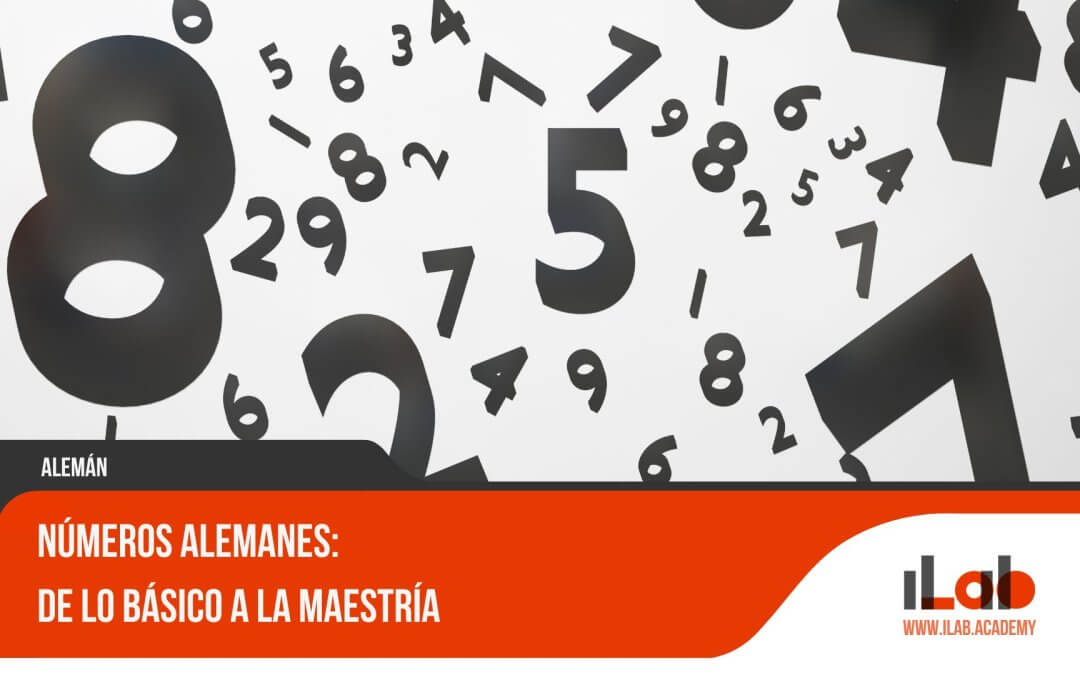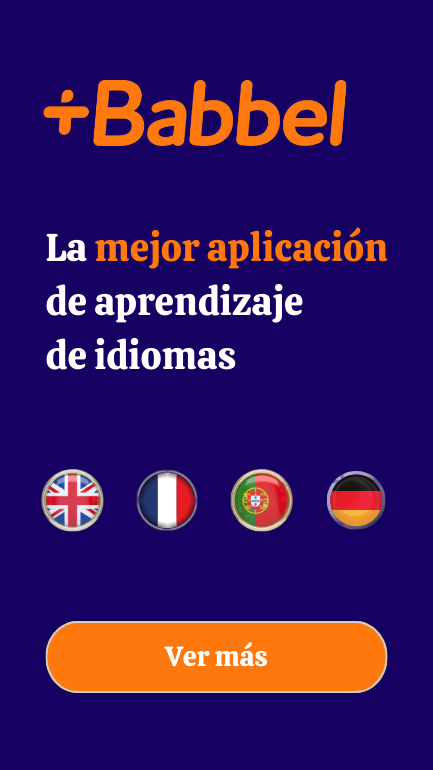Table of contents
Is it true that mastering idioms can truly make you sound like a native speaker? I’m convinced it can. As someone who’s spent years wrapping their tongue around the intricacies of German, I’ve learned that idioms are the secret spice of conversation. They don’t just add flavor; they show you’re in the know. In this guide, I’ll share with you the idioms that have opened doors to more nuanced chats and warmer connections. I’ll show you how these phrases reflect German culture and how you can weave them seamlessly into your dialogues. Understanding idioms isn’t just about words; it’s about embracing a new way of thinking. So, let’s get started on this journey together, and you’ll soon find yourself chatting with the confidence and finesse of a local.
Key Takeaways
- Idioms play a crucial role in enriching language and deepening cultural understanding in conversations.
- Learning idiomatic expressions can enhance fluency and help non-native speakers sound more like native speakers.
- Literal translations of idioms may not convey their figurative meanings, highlighting the importance of understanding cultural nuances.
- German idioms reflect cultural values and provide insights into the collective identity and societal norms of the German people.
The Importance of Learning Idioms
Mastering idiomatic expressions is crucial for anyone looking to communicate in German with a sense of authenticity and cultural insight. Idioms aren’t just fancy turns of phrase; they’re the essence of a language’s cultural heartbeat. When I first dived into the world of German idioms, I quickly realized they were windows into the collective German psyche, revealing values, humor, and historical nuances that aren’t apparent in formal language study.
Learning idioms has made a tremendous difference in my ability to speak German fluently. It’s one thing to know vocabulary and grammar, but it’s another to weave expressions into my conversations that make native speakers nod with recognition. I’ve found that understanding the figurative meanings of idioms, rather than just their literal translations, often sparks moments of genuine connection and shared laughter.
For instance, saying “Ich verstehe nur Bahnhof” literally means “I only understand train station,” but figuratively, it conveys that I’m completely confused. Such expressions can’t be translated word-for-word if I want to preserve their intended meaning. And that’s the fun part – deciphering these phrases has been like solving linguistic puzzles, each one enriching my speech with more color and precision.
I’ve learned that idioms can vary widely between regions and contexts. That’s why it’s important for me to not only learn them but also to understand when and how to use them appropriately. I steer clear of the common pitfalls, like overusing them or applying them in the wrong situations. After all, sounding like a native isn’t just about knowing the language; it’s about using it with finesse.
Popular German Idioms and Their Meanings
One cannot delve into conversational German without encountering a plethora of idioms that pepper the language with local color and wit. These expressions often carry meanings that transcend their literal translations, offering glimpses into the collective psyche and cultural values of German-speaking people. I’ve found that grasping these idioms not only makes conversations more engaging but also earns me nods of appreciation from native speakers.
Here are a few of my favorites:
- “Da steppt der Bär” – Literally “the bear dances there,” it’s used to indicate that a party or event is going to be really lively.
- “Das ist nicht mein Bier” – It translates to “that’s not my beer,” meaning it’s none of my business or not my problem.
- “Ich verstehe nur Bahnhof” – “I only understand train station” is a humorous way to say you don’t understand anything at all.
Each of these idioms has a backstory that often reflects the German culture’s love for metaphor and allegory. “Da steppt der Bär” conjures up images of a raucous celebration where even a bear might join in the fun. “Das ist nicht mein Bier” harks back to the communal culture of beer gardens where minding one’s own mug was a sign of respect. And “Ich verstehe nur Bahnhof” likely originated from the confusion and noise of busy train stations, a familiar experience to many.
Incorporating these idioms into my German conversations has been a game-changer. They don’t just add flavor; they show that I’ve dived deeper into the language and culture. That’s why I’m always on the lookout for new idiomatic expressions to sprinkle into my chats.
Idioms Reflecting German Cultural Values
Throughout my language journey, I’ve discovered that certain German idioms are deeply rooted in the core values of German society, such as punctuality, efficiency, and directness. For instance, “Pünktlichkeit ist die Höflichkeit der Könige,” translates to “Punctuality is the politeness of kings,” highlighting the cultural emphasis on being on time. This saying underscores the respect and consideration that punctuality communicates in German culture.
Efficiency is another cornerstone, often reflected in the idiom, “Nicht lange fackeln,” meaning “Don’t beat around the bush.” Germans value getting straight to the point without unnecessary delay, indicative of their appreciation for clear and efficient communication.
Directness, sometimes perceived as bluntness, is encapsulated in the phrase, “Klartext sprechen,” which means “to speak plainly.” This idiom encourages straightforwardness and honesty in conversations, mirroring the German tendency to avoid ambiguity and speak openly about one’s thoughts.
Understanding these idioms gives me insight into the German way of life and the behavioral expectations within their society. It’s not just about learning the language; it’s about grasping the cultural nuances that come with it. Adopting these idioms in conversation not only enhances my German proficiency but also shows cultural sensitivity and respect.
As I continue to explore the fascinating world of German idioms, I’m about to delve into thematic idioms for various situations in the next section. Here, we’ll look at phrases tailored to specific contexts, whether you’re at work, with friends, or expressing your emotions. These idioms will be your toolkit for navigating a range of scenarios with the ease of a native speaker.
Thematic Idioms for Various Situations
Building on these cultural idioms, I’ll now explore how specific phrases can be adeptly employed in various everyday scenarios, from professional to personal. Thematic idioms can be quite the lifesaver when I’m trying to navigate different social waters. They add a touch of finesse to my conversations and show that I’ve got more than just textbook German under my belt.
In professional settings, I often use “den Nagel auf den Kopf treffen,” which means to hit the nail on the head, to express that someone has made an extremely accurate or valid point. It’s a great way to acknowledge a colleague’s insight without getting too informal.
When I’m traveling, I find “Ich verstehe nur Bahnhof” quite handy. Literally translating to “I only understand train station,” it’s the German way of saying I’m completely lost or don’t understand a thing. It’s a humorous, light-hearted phrase that usually gets a knowing nod and sometimes even directions.
In casual conversations, especially when I want to describe an easy task, I like to throw in “Das ist kein Hexenwerk,” meaning it’s not witchcraft, akin to saying it’s not rocket science in English. It’s a simple way to downplay difficulties and can add a bit of humor to the mix.
Here’s a quick list to sum up these situational idioms:
- For professional precision: “Den Nagel auf den Kopf treffen”
- For travel troubles: “Ich verstehe nur Bahnhof”
- For casual chats: “Das ist kein Hexenwerk”
With these idioms in my arsenal, I’m ready to tackle a variety of conversations. Next, I’ll delve into how to weave these expressions seamlessly into everyday speech, so stay tuned for some practical tips.
Incorporating Idioms into Everyday Speech
I’ve found that regularly practicing idioms in daily conversations is the key to making them stick. It’s one thing to memorize lists of phrases, but it’s another to weave them into your speech seamlessly. I start by picking a handful of idioms that resonate with me and then challenge myself to use them throughout my day. Whether I’m ordering at a café or chatting with a friend, I look for opportunities to slip in a well-chosen idiom.
It’s crucial to use idioms appropriately, though. I always consider the context and the company I’m in. For instance, saying “Da steppt der Bär” (literally “There dances the bear”) might be great at a lively party, but it would be out of place in a serious business meeting. Here’s a quick table that helps me decide when to use certain idioms:
| Situation | Idiom to Use |
|---|---|
| Celebrating success | “Das ist ein Volltreffer!” |
| Experiencing failure | “Da beißt die Maus keinen Faden ab” |
| Making a fresh start | “Auf zu neuen Ufern!” |
| Expressing difficulty | “Da haben wir den Salat” |
By matching idioms to situations, I avoid awkward moments and instead, add color to my conversations. Plus, I’ve noticed that when I use idioms correctly, native speakers often light up, recognizing a shared cultural touchstone.
As I continue to incorporate these expressions into my everyday speech, I become more attuned to the nuances of the German language. And speaking of nuances, in the next section, I’ll dive into how idioms and local dialects intersect, enriching the tapestry of German even further.
Idioms and Local Dialects
Many German idioms vary widely across different regions, reflecting the rich diversity of local dialects. As someone fascinated by the nuances of language, I’ve noticed that these idiomatic expressions can offer a glimpse into the unique cultural quirks of each area. For instance, a common saying in Hochdeutsch (Standard German) might have its own twist in Bavarian or Swabian dialects.
This regional variation is not just a matter of curiosity; it’s actually quite crucial for anyone looking to blend in with locals or understand the full context of conversations. When I’m traveling through Germany, I make it a point to pick up regional idioms because they serve as an instant icebreaker and show respect for local customs.
Here are three reasons why understanding local idioms is important:
- Cultural Insight: Regional idioms often carry historical and cultural significance that can enrich your understanding of the area.
- Social Connection: Using local idioms can help you connect with native speakers on a deeper level, as it shows appreciation for their dialect and culture.
- Enhanced Communication: Knowledge of local expressions allows you to follow conversations more easily, especially when they’re peppered with colloquialisms.
Each region’s idioms enrich the conversations in their own way, making it a delightful challenge to keep up with the variations. I’ve found that embracing these differences not only improves my German but also adds layers of meaning and enjoyment to every interaction.
Now, as we move away from the nuances of local dialects, let’s dive into the next exciting part of our linguistic journey: fun with idioms: games and exercises. This upcoming section is all about putting idioms into practice in enjoyable and effective ways.
Fun with Idioms: Games and Exercises
How can we turn the challenge of mastering German idioms into an enjoyable learning experience? I’ve found that integrating games and exercises into my study routine not only boosts my memory but also keeps me engaged. After all, learning should be fun, shouldn’t it?
Let’s dive into some interactive activities that I’ve personally used. One of my favorites is the “Idiom Memory Match,” where I create cards with idioms on one side and their meanings on the other. I lay them out face down and try to find pairs—an excellent way to test my recall!
Another game I play is “Idiom Charades.” Here, I act out an idiom for friends or classmates to guess. It’s a hilarious way to deepen understanding, and it’s great for group settings.
To add a level of sophistication, I’ve created a table to organize idioms I’m learning:
| German Idiom | Literal Translation | Figurative Meaning |
|---|---|---|
| Da steppt der Bär | There dances the bear | It’s going to be a great party |
| Die Katze im Sack kaufen | To buy the cat in the sack | To buy something without inspecting it |
| Um den heißen Brei herumreden | To talk around the hot porridge | To beat around the bush |
| Einen Kater haben | To have a male cat | To have a hangover |
| Die Daumen drücken | To press the thumbs | To keep one’s fingers crossed |
I also use exercises like filling in the blank in sentences or crafting dialogues using a new idiom each time. These methods help me to actively employ what I’ve learned in real-life conversations.
Challenges and Misconceptions
Navigating the nuances of German idioms presents its own set of challenges for learners like me. It’s not just about the words themselves, but the cultural context and history behind them. Take “den Nagel auf den Kopf treffen” – literally hitting the nail on the head. Sure, I can understand the words, but it took me a while to grasp that Germans use it to mean “to get to the point.” And that’s just one idiom among many!
Misconceptions can also lead to amusing or embarrassing mix-ups. I remember confidently saying “Ich bin heiß” on a warm day, thinking I was expressing that I felt hot. Little did I know, I’d actually told everyone I was feeling “hot” in a more… sensual way. The correct phrase was “Mir ist heiß” – a subtle difference that changes the meaning entirely!
Here’s a list of common pitfalls I’ve encountered with German idioms:
- Taking Idioms Literally: When I first heard “Es ist nicht alles Gold, was glänzt,” I thought it was about jewelry. Turns out, it’s the equivalent of “All that glitters is not gold,” speaking to the value of things beyond their appearance.
- Using the Wrong Context: Saying “Da steppt der Bär” (the bear dances there) at a somber event? Big mistake. It’s meant for lively occasions.
- Mispronouncing Words: Idioms are sensitive to pronunciation. Mixing up “Bär” (bear) and “Bar” (bar) can lead to confusion when trying to say something dances!
Getting these idioms right is crucial for me to sound like a native and fully express myself in German. It’s an ongoing journey, but one I’m committed to mastering.
Frequently Asked Questions
How Have German Idioms Evolved Over Time, and How Do They Continue to Change in the Modern Era?
German idioms have evolved with time, reflecting shifts in culture and society. I’ve noticed how modern technology, international influences, and changing values shape their development. They’re not static; they’re living phrases that adapt. As I watch trends and engage with native speakers, I see new idioms emerge while others fade. It’s fascinating to observe and I’m always learning, ensuring my German stays current and relatable.
Can an Understanding of German Idioms Improve My Ability to Understand German Literature and Media?
Absolutely, knowing German idioms has boosted my grasp of literature and media. It unlocks nuances and humor that’d otherwise fly over my head. It’s like I’ve got an inside joke with native speakers now. I catch cultural references and the character’s true colors shine through. I’m not just decoding words; I’m feeling the vibe of the language. So, yes, idioms have been key to my deeper understanding.
Are There Any German Idioms That Have Been Adopted or Translated Into Other Languages Due to Globalization?
Yes, there are German idioms that have made their way into other languages. Phrases like “Zeitgeist” (spirit of the age) or “Schadenfreude” (pleasure derived from someone else’s misfortune) are used internationally. Globalization has definitely blurred linguistic borders, allowing certain expressions to become part of the global lexicon. I’ve noticed them popping up in English conversations, showing just how interconnected our cultures have become.
How Do German Idioms Compare to Those in Other Germanic Languages Like Dutch or Swedish in Terms of Common Roots or Themes?
I’ve noticed that German idioms often share roots with Dutch and Swedish phrases, reflecting our shared Germanic heritage. Common themes like weather expressions or body parts pop up across languages, despite variations in wording. It’s fascinating to see how cultural nuances shape these idioms, giving each language its unique twist while maintaining a recognizable thread of similarity. It really highlights the interconnectedness of our European languages and cultures.
What Role Do German Idioms Play in Humor and Comedy Within German-Speaking Cultures?
German idioms add a witty punch to humor and comedy in my experience. They weave cultural quirks into jokes, making them resonate with locals. I’ve noticed that when I crack a joke using an idiom, it often lands better because it reflects shared experiences. They’re not just about language; they’re about connecting with the audience on a deeper cultural level, which is essential for humor to hit its mark.
Conclusion
Diving into German idioms has been a blast, hasn’t it? They’re not just phrases; they’re windows into the German soul. Sprinkling these gems into your chats will not only impress locals but also enrich your understanding of this rich culture. So go ahead, throw in an idiom or two and watch your conversations come alive. Remember, practice makes perfect, and with idioms, you’re not just speaking German; you’re living it. Viel Glück!














